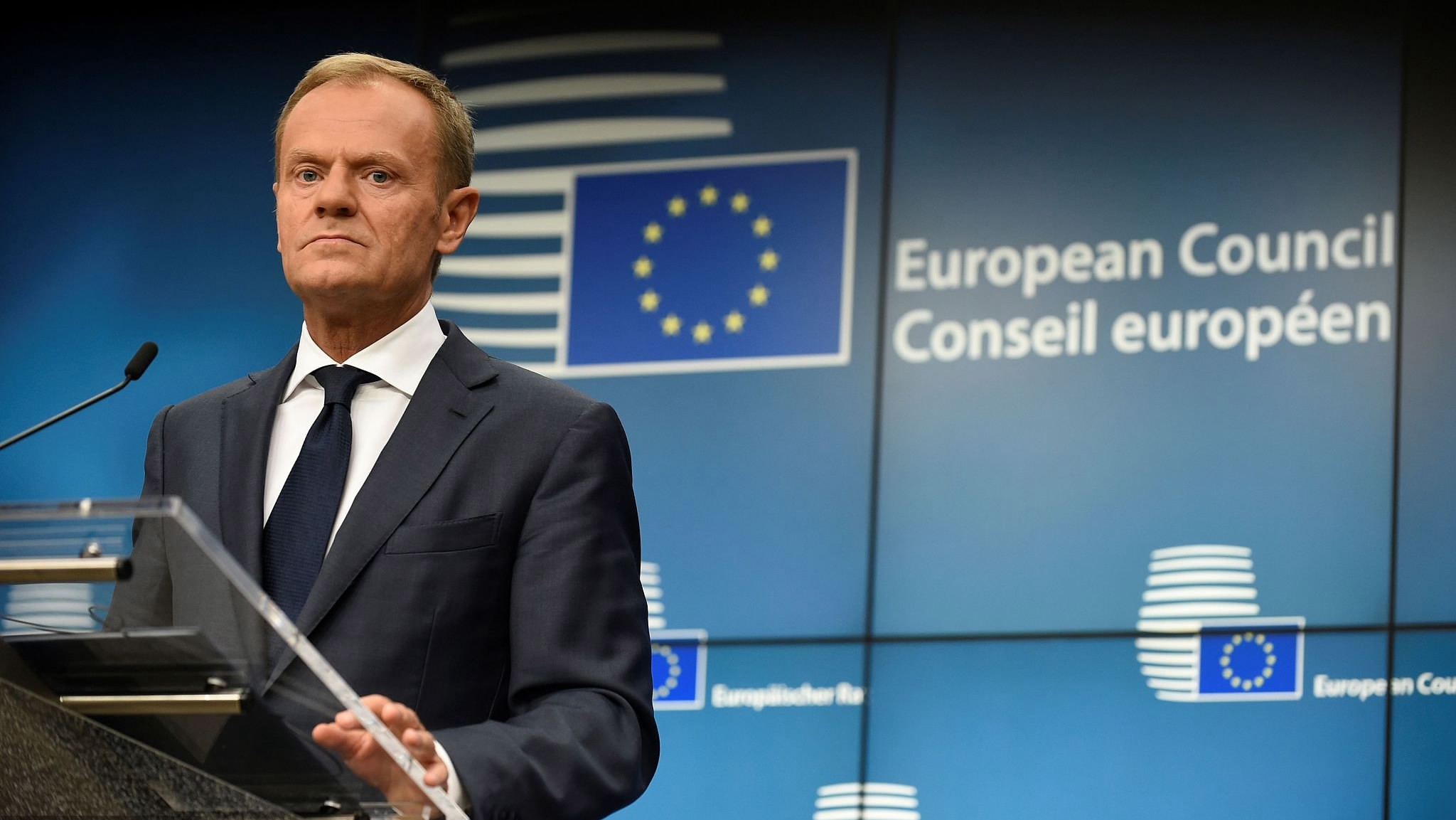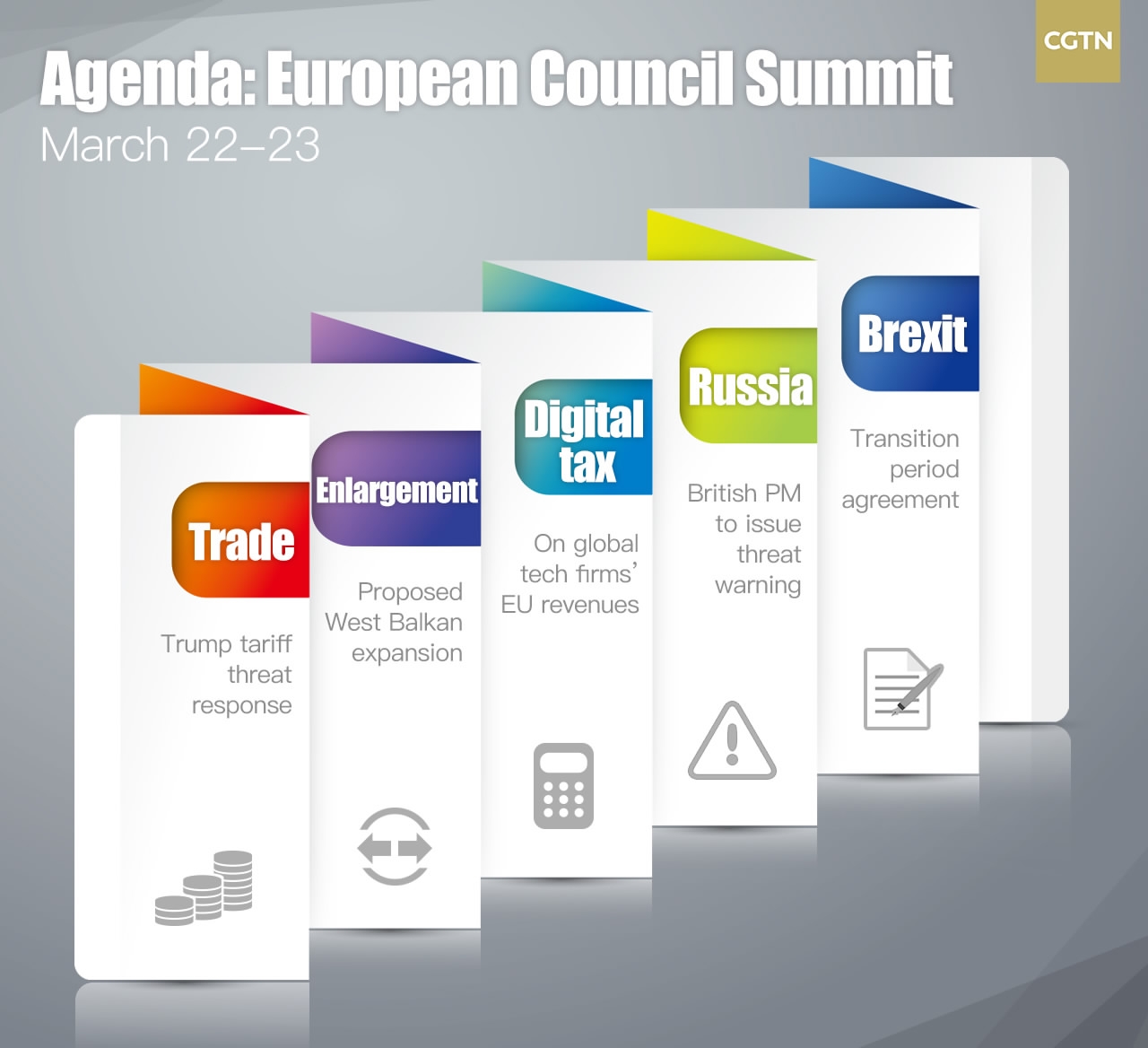
Politics
12:36, 22-Mar-2018
Trade tariffs, Russia, Facebook tax: EU summit talking points
By John Goodrich

Leaders of the European Union’s 28 member states gather in Brussels on Thursday and Friday with proposed US trade tariffs, relations with Russia, Brexit and taxation of global tech giants set to feature heavily.

‘Keep world trade alive’
The US threat to impose tariffs on steel and aluminum imports – and how the EU should respond – is high on the agenda. European Council President Donald Tusk has warned that “trade wars are bad, and easy to lose,” and said the objective of the EU is clear: “to keep world trade alive.” The EU is attempting to secure an exemption from the tariffs, and Tusk said on Wednesday that he is a “cautious optimist” on the issue. Mexico and Canada have already been granted temporary exemptions. The European Commission has previously threatened to issue targeted tariffs if the US proceeds, hitting industries based in states represented by the Republican leadership. Tusk has warned the stakes “are very high.”
Read more: World awaits China's response
Russia ‘a threat to EU’
British Prime Minister Theresa May is scheduled to update the EU on the March 4 nerve agent attack in Salisbury, which London argues Russia is responsible for. In a briefing to UK media ahead of the summit, an aide to May said the prime minister plans to warn the EU that Russia will be a threat to the entire bloc for “years to come.” On Monday, EU foreign ministers expressed their support to Britain and the European Council is set to strongly condemn the attack. Tusk has said the attack is a sign the EU must reinforce its defenses and do more to guard against “hybrid threats,” such as election-meddling.
Read more: UK mulls new Russia sanctions
A step closer to Brexit
EU leaders are expected to agree in principle to a transition period after Britain leaves the bloc, although Spain could yet delay progress. The framework of the deal was announced on Monday and had been set to be nodded through by EU leaders on Friday, but reservations from Madrid over the status of Gibraltar – the British overseas territory on Spain's south coast – during the proposed transition period have clouded the issue. The leaders will also discuss the next stage of Brexit negotiations and adopt guidelines on the future EU-UK relationship – with an emphasis on trade ties after the 21-month transition period ends.
Read more: UK, EU reach transition deal
Taxing Facebook?
The money made by global tech firms from citizens of the EU bloc – and how these companies are, or are not, taxed -- has long been a contentious issue in Brussels. The European Commission put forward a three-percent tech tax plan on Wednesday, but it is expected to be controversial. According to EU Observer, there is a split between countries such as France, which under President Emmanuel Macron has pushed for a digital tax, and low-tax member states like Ireland and Luxembourg which are home to many tech companies. The EU, which has already taken anti-trust actions against Apple, Google and Amazon, insists the new proposal is not anti-US. But the digital tax plan risks deepening the war of words over trade between Brussels and Washington.
Read more: EU plots digital tax
Western Balkan expansion?
The EU is increasingly emphasizing stronger relations with the Western Balkans, with a high profile summit in the region due to take place in May. The possibility of the EU expanding to take in Western Balkan countries is growing amid a battle for influence in the region.
Read more: EU strategy on Western Balkans
Other business
The ongoing scandal over Cambridge Analytica and Facebook is expected to be raised. Tusk said on Wednesday that there is a “need to guarantee transparent practices as well as full protection of citizens' privacy, and personal data, by social networks and digital platforms.”
Read more: Zuckerberg on data scandal
The official agenda for the summit also includes discussions on jobs, growth and competiveness, the development of the economic and monetary union, and EU relations with Turkey.
7971km

SITEMAP
Copyright © 2018 CGTN. Beijing ICP prepared NO.16065310-3
Copyright © 2018 CGTN. Beijing ICP prepared NO.16065310-3